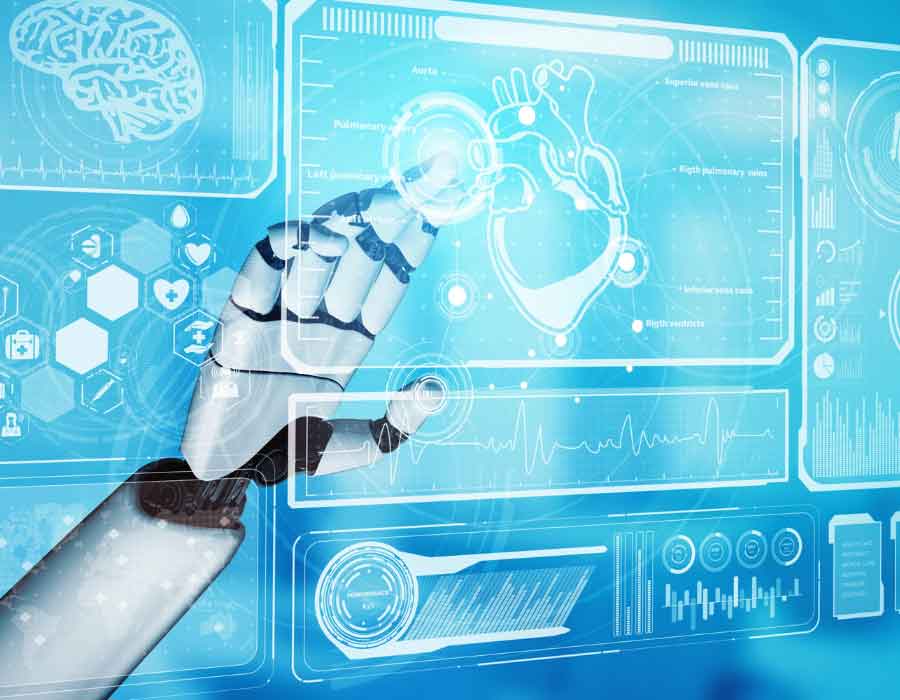Artificial Intelligence (AI) in Medical Devices
For the medical device industry, the advent of artificial intelligence has been a long time coming. From enhancing telehealth capabilities to boosting patient adherence, AI-infused systems, and technologies are causing a slew of changes for clinical tool manufacturers as they scramble to create more resilient, inexpensive, and effective remote servicing models for disseminating therapeutic benefits to those in need. With nearly 77% of manufacturers surveyed citing digital transformation as a concern, it is no surprise that the clinical device manufacturing industry is embracing this technology with renewed vigor to differentiate the efficacy and cost benefits of their therapeutic products, particularly in the face of commoditization of particular medical devices, the trends driving cost/results-primarily based healthcare, and extended pricing pressure.
Why Medical Device Industry Adopting AI?
Better Patient Consequences
According to research by Frost & Sullivan, AI can improve patient outcomes by 40% and reduce treatment costs by up to 50%. AI has proven to be a reliable solution for reducing physician workload and enabling them to care for more patients attentively and accurately. Increased patient adherence, improved scientific decision-making, and increased affordability of essential technologies such as MRI scans indicate that AI enables improved patient outcomes.
Advanced Regulatory Control
Due to their capacity to influence patients' health for better or worse, scientific devices are subject to stringent regulatory controls that affordably guarantee their safety and effectiveness. In addition to preventing the delivery of defective devices to the market, this level of authority impedes the adoption of innovative technologies such as artificial intelligence (AI) in medicine and exceptionally managed and proven procedures in medical device manufacturing. AI can expedite this process by significantly reducing inspection times by delivering more significant insights from subtle patterns in large data sets and advanced analytics into how systems function over time and in various circumstances.
Diagnosis with Faster and Safer Technology
AI-centric apps that assist in clinical analysis are among the most promising and popular clinical technology packages, with Forrester predicting that they will be the second-largest AI software trend by 2025. This is a boon for manufacturers, as they now have access to an entirely new source of growth. From early breast cancer detection to myocardial disease risk assessment, AI-enabled structures can diagnose with speed and accuracy.
Identification of Safety Signals
One of the characteristics of AI-enabled systems is the use of bio-electric markers and motion patterns to determine the health of patients. Upon its release, the Apple Watch was used to save the lives of a number of its customers, who credited it with helping them survive dangerous situations in which they were by themselves.
Drug Development with Faster Generation
Drug development is likely one of the treatment areas that stands to benefit the most from AI and its allied technologies. The process of developing a drug is frequently extremely labor-intensive, requiring tens of millions of character hours and billions of development hours. A closer examination of the procedure reveals that the majority of time throughout the stages of drug development is devoted to analytical work.
Determining pathways, the first step in drug development is now reliant on so many information sources that conventional methods are utterly ineffective for reaching a desired outcome on time. Several pharmaceutical companies, for instance, are attempting to use AI and machine learning to identify new indications (uses) for their current portfolio of products, such as identifying existing capsules used to treat different diseases that may be effective in treating COVID-19. This drug repurposing could drastically reduce the cost and time required to bring a much-needed treatment to market, thereby saving patients' lives.
Faster Diagnosis
In a world plagued by tour restrictions, decreased hospital visits, and postponement of vital care activities, clinical fitness vendors seek techniques to engage with their patients in meaningful ways while remaining mindful of their work constraints.
In this regard, the provision of diagnosis-as-a-service (DaaS) can be especially appealing to producers and health carriers. It eliminates the need for a substantial up-front investment and significantly increases the lifetime cost for manufacturers. AI has proven to be remarkably effective at diagnosing a variety of diseases from a variety of data sources, and more advanced capabilities are just around the corner. This is a golden opportunity for tool manufacturers to invest in AI-enabled 'smart' devices that can equip physicians with more potent tools, thereby transforming healthcare for a large portion of the population.
